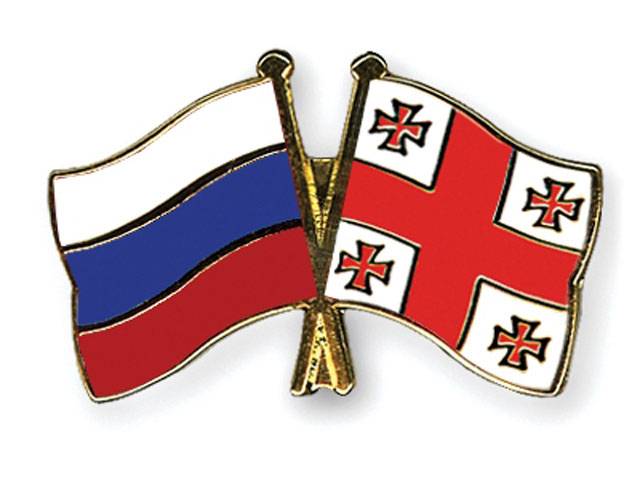TBILISI (AFP) - Georgia and Russia are to hold their first direct diplomatic talks since the arch-foes severed ties after the 2008 war over the separatist region of South Ossetia, Georgia’s foreign minister said Monday. Georgian Prime Minister Bidzina Ivanishvili’s special representative for Russia Zurab Abashidze will meet Russian diplomats “this week in Europe,” Foreign Minister Maia Panjikidze told journalists. “We may not expect any concrete positive outcome from this meeting, but the fact that a first meeting takes place is already positive,” she added. Georgia and Russia have not had diplomatic relations since the brief 2008 war and the Kremlin refuses to have any dealings with President Mikheil Saakashvili.
Ivanishvili made normalising ties with Russia his foreign policy priority after his Georgian Dream coalition defeated Saakashvili’s party in a parliamentary election two months ago.
He has however vowed to maintain Saakashvili’s pro-Western course and continue Georgia’s bid to join NATO and the European Union - an ambition strongly opposed by Russia.
On November 1, Ivanishvili appointed the former Georgian ambassador to Russia, Zurab Abashidze, as his special representative for talks with Moscow.
Russian Foreign Minister Sergei Lavrov said on Sunday that there will be contacts with Abashidze “in the nearest future” adding that “something will be clarified at that meeting.”
“We are ready for reasonable steps, those that are motivated by an interest in citizens’ lives,” Lavrov said, quoted by the Interfax news agency.
Panjikidze said that in talks with Moscow Tbilisi wants to first focus on matters where rapid progress is possible, rather than touching sensitive issues such as Russian policy towards breakaway regions.
“We think it is possible to normalise cultural and trade ties at the initial stage,” Panjikidze told AFP.
The “informal” meeting may possibly be held in neutral Switzerland, which serves after the war as a point of contact between Russia and Georgia through interests sections in the Swiss embassies in Moscow and Tbilisi, Abashidze told a news conference.
“We are ready for a serious and constructive dialogue with Russia,” Abashidze said.
“We are not putting preconditions for the dialogue and do not expect any from the Russian side,” he added.
Georgian analysts have expressed cautious optimism over the meeting, saying that Russia may try to force Georgia out of Western orbit.
“It is a positive step, but there have also been recent statements by Lavrov that Russia wants Georgia to reverse its course towards Euro-Atlantic integration,” said Sergi Kapandadze of the Georgian Reforms Associates think tank.
Moscow has stationed thousands of troops in the breakaway regions of Abkhazia and South Ossetia since recognising them as independent after the war - a move that Tbilisi and its Western allies regard as occupation.
In 2006 Russia banned the import of some Georgian products like wine, mineral water and fruit and severed transport and postal links with Georgia.
Since the war, Russian and Georgian diplomats have met regularly in Geneva for talks hosted by the United Nations, the European Union and the Organisation for Security and Co-operation in Europe.
The talks have not so far resulted in any major decisions or compromises.
Saturday, April 20, 2024
Georgia, Russia to hold 1st direct talks

22 suspects arrested
April 20, 2024
RCCI chief for promoting law-abiding culture
April 20, 2024
Provision of quality education govt’s priority: KP minister
April 20, 2024
A Tense Neighbourhood
April 19, 2024
Dubai Underwater
April 19, 2024
X Debate Continues
April 19, 2024
Hepatitis Challenge
April 18, 2024
IMF Predictions
April 18, 2024
Kite tragedy
April 19, 2024
Discipline dilemma
April 19, 2024
Urgent plea
April 19, 2024
Justice denied
April 18, 2024
AI dilemmas unveiled
April 18, 2024
ePaper - Nawaiwaqt
Advertisement
Nawaiwaqt Group | Copyright © 2024





